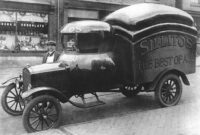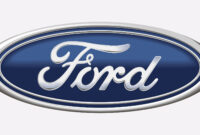Yard Trucks For Sale: Your Ultimate Guide to Optimizing Logistics sale.truckstrend.com
In the bustling world of logistics, efficiency is king. Every minute saved, every movement optimized, directly impacts a business’s bottom line. At the heart of this optimization within confined spaces lies a specialized, often unsung hero: the yard truck. Also known as terminal tractors, shunt trucks, spotters, or hostlers, these robust vehicles are purpose-built to move semi-trailers swiftly and safely within distribution centers, ports, rail yards, manufacturing facilities, and other large private properties.
If you’re looking to streamline your operations, reduce wear and tear on your expensive road tractors, and enhance workplace safety, investing in a yard truck is a strategic decision. This comprehensive guide will delve into everything you need to know when considering "Yard Trucks For Sale," from understanding their core function to navigating the purchasing process and making an informed investment.
Yard Trucks For Sale: Your Ultimate Guide to Optimizing Logistics
What is a Yard Truck and Why Do You Need One?
A yard truck is a heavy-duty, short-wheelbase truck designed specifically for maneuvering semi-trailers. Unlike an over-the-road semi-truck, a yard truck features a hydraulic fifth wheel that can be raised and lowered, allowing it to quickly hook up to and drop trailers without the driver needing to exit the cab and crank landing gear. They also boast superior visibility, a tighter turning radius, and simplified controls, making them incredibly efficient for repeated short-distance movements.
Why are they indispensable for modern logistics operations?
- Enhanced Efficiency: The hydraulic fifth wheel and automatic transmission dramatically speed up trailer spotting, reducing the time it takes to move trailers from minutes to seconds.
- Increased Safety: Designed with large windows, multiple mirrors, and often rear-facing cameras, yard trucks offer excellent all-around visibility, minimizing blind spots and reducing the risk of accidents in busy yards. Their lower speed capabilities also contribute to a safer environment.
- Reduced Wear on Road Tractors: Using dedicated yard trucks prevents your expensive, highway-ready semi-trucks from incurring unnecessary wear and tear (and mileage) during low-speed, high-maneuverability yard work. This extends the lifespan of your road fleet and reduces maintenance costs.
- Optimized Space Utilization: Their agile design and tight turning radius allow them to operate effectively in congested yards, maximizing the use of available space.
- Specialized Design: Features like durable frames, heavy-duty axles, and easy-access maintenance points make them robust and reliable for continuous operation.

In essence, a yard truck is a specialized tool that pays for itself by significantly boosting productivity, improving safety, and preserving your primary trucking assets.
Key Considerations When Buying a Yard Truck
Purchasing a yard truck requires careful consideration of several factors to ensure you select the right machine for your specific operational needs and budget.
- New vs. Used:
- New: Offers the latest technology, full warranties, and no prior wear. Ideal for long-term investment and predictable maintenance. However, the upfront cost is significantly higher.
- Used: A more budget-friendly option, offering substantial savings. Requires thorough inspection, as wear and tear can vary widely. Warranties are typically limited or non-existent, and older models may lack modern features or fuel efficiency.
- Fuel Type: Diesel vs. Electric:
- Diesel: The traditional choice, known for robust power, longer operating range, and widespread fueling infrastructure. However, they produce emissions and have higher fuel and maintenance costs.
- Electric: A growing trend, offering zero emissions, quieter operation, lower running costs (electricity vs. diesel), and reduced maintenance (fewer moving parts). Challenges include higher upfront cost, charging infrastructure requirements, and potentially limited range depending on battery capacity and usage. Consider your operational hours and available charging facilities.
- Transmission: Most yard trucks come with heavy-duty automatic transmissions, designed for constant stop-and-go operation. Ensure the transmission is well-maintained, especially in used models.
- Lift Capacity: This refers to the maximum weight the fifth wheel can lift. It’s crucial to match this to the heaviest trailers you will be moving. Standard capacities range from 50,000 to 100,000 lbs.
- Fifth Wheel Height: While adjustable, ensure the range accommodates the variety of trailers in your fleet.
- Cabin Features & Ergonomics: Operator comfort directly impacts productivity and safety. Look for good visibility, comfortable seating, air conditioning/heating, intuitive controls, and ample space.
- Maintenance & Parts Availability: Opt for models from reputable manufacturers with readily available parts and service networks. Common components (engine, transmission) are a plus.
- Application Specifics:
- Distribution Centers/Warehouses: Often require high maneuverability and quick cycles.
- Ports/Rail Yards: May need higher lift capacities for heavier containers and robust frames for demanding environments. Some may require DOT-compliant models for short public road crossings.
- Manufacturing Facilities: Depend on the volume and type of trailers being moved.
- DOT Compliance: Most yard trucks are designed for off-road (private property) use and are not DOT compliant for public roads. If your operation requires moving trailers across public streets, even for short distances, you will need a DOT-compliant model, which includes features like full lighting, mirrors, and proper braking systems. These are typically more expensive and may have different licensing requirements.
- Budget: Clearly define your budget, factoring in not just the purchase price but also potential delivery costs, accessories, initial maintenance, and ongoing operational expenses (fuel/electricity, insurance, parts, labor).
Types and Leading Manufacturers of Yard Trucks
While the core function remains the same, yard trucks come in various configurations to suit different needs.
Primary Types:
- Standard Off-Road/Yard Spotter: The most common type, designed exclusively for private property use.
- DOT-Compliant/On-Road Capable: Equipped with road-legal features for occasional public road crossings.
- Heavy-Duty/Port Spec: Built for extreme loads and harsh environments, often with specialized axles and stronger frames.
- Electric Yard Trucks: Battery-powered alternatives to diesel, gaining popularity for environmental and cost-saving benefits.
Leading Manufacturers:
- Kalmar Ottawa: A market leader, renowned for durability, reliability, and innovative features. Offers a wide range of diesel and electric models.
- Capacity Trucks (a Terex Brand): Another major player, known for robust construction and performance. They offer various models, including DOT-compliant options.
- TICO (Terminal Investment Corporation): Specializes in yard trucks, offering a strong lineup with a focus on operator comfort and efficiency.
- Autocar (ACX Series): Known for severe-duty trucks, their ACX series yard spotters are built for tough applications.
- BYD: A prominent player in the electric vehicle market, offering fully electric yard trucks with advanced battery technology.
The Buying Process: Where to Find Yard Trucks For Sale
Once you’ve identified your needs, it’s time to explore where to find "Yard Trucks For Sale."
- Authorized Dealerships: For new trucks, authorized dealers offer the full range of models, manufacturer warranties, financing options, and access to genuine parts and certified service. Many also sell certified used units.
- Online Marketplaces:
- Specialized Equipment Sites: Websites like TruckPaper.com, MachineryTrader.com, IronPlanet.com, and RitchieSpecs.com are excellent resources for both new and used yard trucks from dealers and private sellers.
- General Classifieds: eBay, Craigslist (for local searches), and Facebook Marketplace can occasionally yield results, though caution and thorough inspection are paramount.
- Auctions: Equipment auctions (both online and in-person) can be a source for good deals, but they come with inherent risks. "As-is, where-is" sales mean you bear all responsibility for the truck’s condition. Pre-inspection is critical.
- Direct from Fleets: Larger companies upgrading their equipment sometimes sell their older yard trucks directly. This can be a good way to find well-maintained units, especially if you can get service records.
- Rental Companies: Some equipment rental companies also sell off their used fleets. These trucks are often well-maintained due to rental company requirements.
Crucial Steps in the Buying Process:
- Research: Gather information on models, features, and typical pricing.
- Inspection: For used trucks, a professional third-party inspection is non-negotiable. Check the engine, transmission, hydraulic system, fifth wheel, brakes, tires, electrical system, and cab condition. Look for leaks, rust, excessive wear, and signs of neglect or abuse.
- Service Records: Request detailed service and maintenance records for used units. This provides insight into its history and how well it was cared for.
- Negotiation: Don’t be afraid to negotiate on price, especially for used equipment.
- Financing: Explore various financing options, including traditional loans, leases, or specialized equipment financing. Rental-purchase options can also be attractive.
Tips for a Successful Yard Truck Purchase
To ensure your investment pays off, keep these actionable tips in mind:
- Define Your Needs Precisely: Before you even start looking, clearly list what you need the truck to do. What weight will it pull? How many hours per day? What kind of terrain? Will it ever go on public roads?
- Set a Realistic Budget: Factor in not just the purchase price, but also delivery, insurance, licensing (if applicable), and ongoing operational costs.
- Prioritize Safety Features: Excellent visibility, ergonomic controls, and reliable braking systems should be high on your list.
- Consider Future Growth: Will your operations expand? Choose a truck that can handle increased demands if necessary.
- Check Local Support: Ensure there’s a reputable dealer or service center nearby that can handle maintenance and provide parts for your chosen brand.
- Test Drive: Always test drive the truck under conditions similar to your intended use, if possible. Pay attention to how it handles, shifts, and brakes.
- Get it in Writing: Ensure all agreements, warranties, and service contracts are clearly documented in writing.
Challenges and Solutions
Even with careful planning, challenges can arise when acquiring a yard truck.
- High Upfront Cost:
- Solution: Explore the used market, consider financing or leasing options to spread the cost, or opt for a rental-purchase agreement.
- Maintenance Complexity:
- Solution: Invest in training for your maintenance staff, or establish a service contract with a reputable dealer. Prioritize models with common, easily sourced parts.
- Finding the "Right Fit":
- Solution: Thorough research, consulting with experienced operators, and leveraging the expertise of reputable dealers can help narrow down the best model for your specific operation.
- Environmental Regulations:
- Solution: If emissions are a concern or future regulations are anticipated, consider newer diesel models with advanced emission controls (Tier 4 Final engines) or invest in electric yard trucks.
Representative Price Range for Yard Trucks
Please note that the prices for yard trucks can vary wildly based on condition, age, manufacturer, specific features, hours of use, and current market demand. The table below provides a representative estimated price range and should be used as a general guide only. Always obtain specific quotes for accurate pricing.
| Type of Yard Truck | Manufacturer (Examples) | Key Features | Estimated Price Range (USD) |
|---|---|---|---|
| New Diesel | Kalmar Ottawa, Capacity | Full warranty, latest tech, high capacity, custom options, DOT-compliant options available | $150,000 – $250,000+ |
| New Electric | Kalmar Ottawa, BYD | Zero emissions, quiet, lower running costs, advanced battery, charging infrastructure needed | $250,000 – $400,000+ |
| Used Diesel (Good Condition, 3-7 yrs old) | Kalmar Ottawa, Capacity, TICO | Well-maintained, moderate hours, some modern features, no warranty | $60,000 – $120,000 |
| Used Diesel (Older/High Hours, 8-15 yrs old) | Kalmar Ottawa, Capacity | Higher hours, potential wear, basic features, "as-is" condition, suitable for lighter use | $25,000 – $60,000 |
| Used Electric | Kalmar Ottawa, BYD | Limited availability, newer technology, higher resale than older diesel, battery health is key | $100,000 – $200,000+ |
Disclaimer: These are estimated price ranges for typical configurations. Actual prices will vary based on specific model, features (e.g., lift capacity, axle configuration, HVAC), dealer, location, and market conditions.
Frequently Asked Questions (FAQ)
Q1: What is the average lifespan of a yard truck?
A1: With proper maintenance, a yard truck can last between 10 to 20 years, or up to 30,000 to 50,000 operating hours. Their lifespan is highly dependent on usage intensity and maintenance quality.
Q2: Can yard trucks be driven on public roads?
A2: Most standard yard trucks are designed for off-road (private property) use and are not DOT (Department of Transportation) compliant. However, some manufacturers offer DOT-compliant models specifically equipped with features like full lighting, mirrors, and braking systems to meet road legal requirements for short public road crossings. Always verify compliance for your specific needs.
Q3: What’s the difference between a yard truck and a semi-truck?
A3: A semi-truck (road tractor) is designed for long-haul highway travel, focusing on speed, fuel efficiency over distance, and driver comfort for extended periods. A yard truck is purpose-built for short-distance, high-frequency trailer movements within a confined space, prioritizing maneuverability, visibility, rapid hook-up/drop-off, and durability in stop-and-go operations.
Q4: Are electric yard trucks a viable option?
A4: Absolutely. Electric yard trucks are becoming increasingly viable, especially for operations with predictable duty cycles and access to charging infrastructure. They offer significant benefits in terms of lower operating costs (fuel and maintenance), reduced emissions, and quieter operation, contributing to a better working environment.
Q5: What maintenance is required for a yard truck?
A5: Regular maintenance for a yard truck includes routine oil changes, filter replacements (oil, fuel, air), hydraulic fluid checks and changes, brake inspections, tire rotation/replacement, and general lubrication. For electric models, battery health monitoring and charging system maintenance are key. Given their continuous stop-and-go operation, preventative maintenance is crucial to extend their lifespan.
Q6: How much does a yard truck cost to operate per hour?
A6: Operating costs vary based on fuel type, local fuel/electricity prices, maintenance frequency, and labor costs. For a diesel yard truck, expect to pay for fuel (5-10 gallons/hour depending on load and idle time), and a share of maintenance/repair costs. Electric trucks will have lower "fuel" costs (electricity) and potentially lower maintenance due to fewer moving parts, but factor in charging time and infrastructure.
Conclusion
Investing in a yard truck is a pivotal decision for any operation heavily reliant on efficient trailer movement. These specialized vehicles are not just pieces of equipment; they are strategic assets that enhance productivity, bolster safety, and reduce operational costs by optimizing your logistics chain.
By carefully assessing your needs, understanding the market for "Yard Trucks For Sale," considering the pros and cons of new vs. used and diesel vs. electric, and meticulously inspecting potential purchases, you can make an informed decision that will serve your business for years to come. A well-chosen yard truck is more than just a purchase; it’s an investment in the future efficiency and success of your operations.



